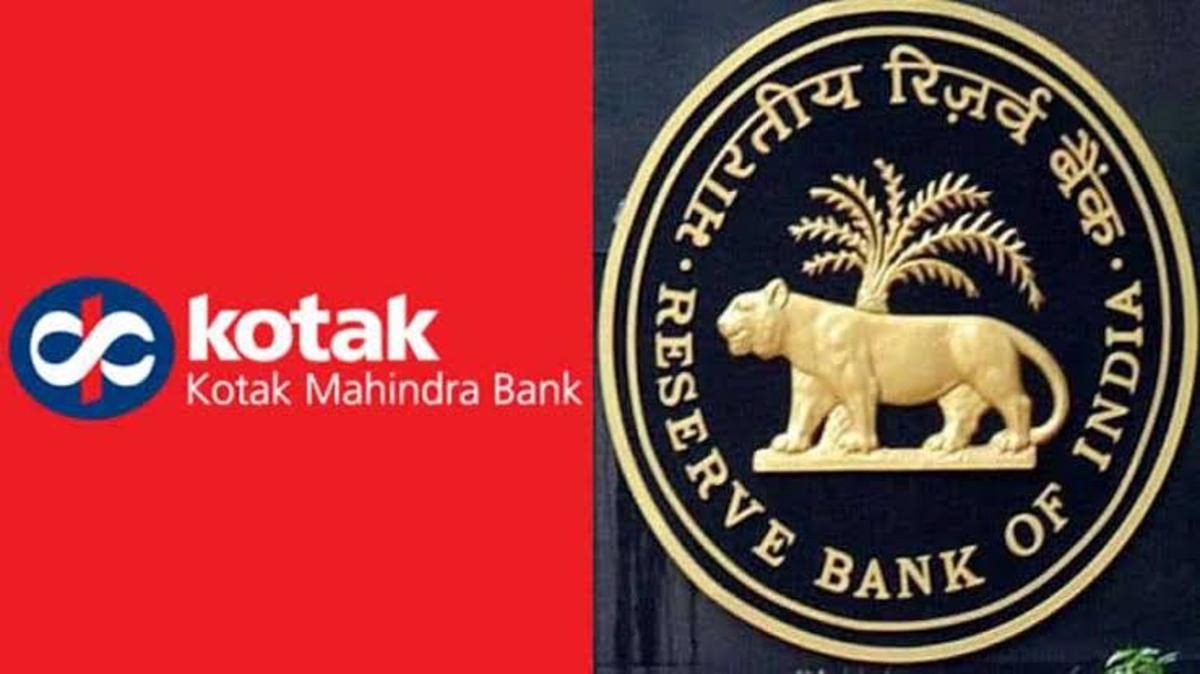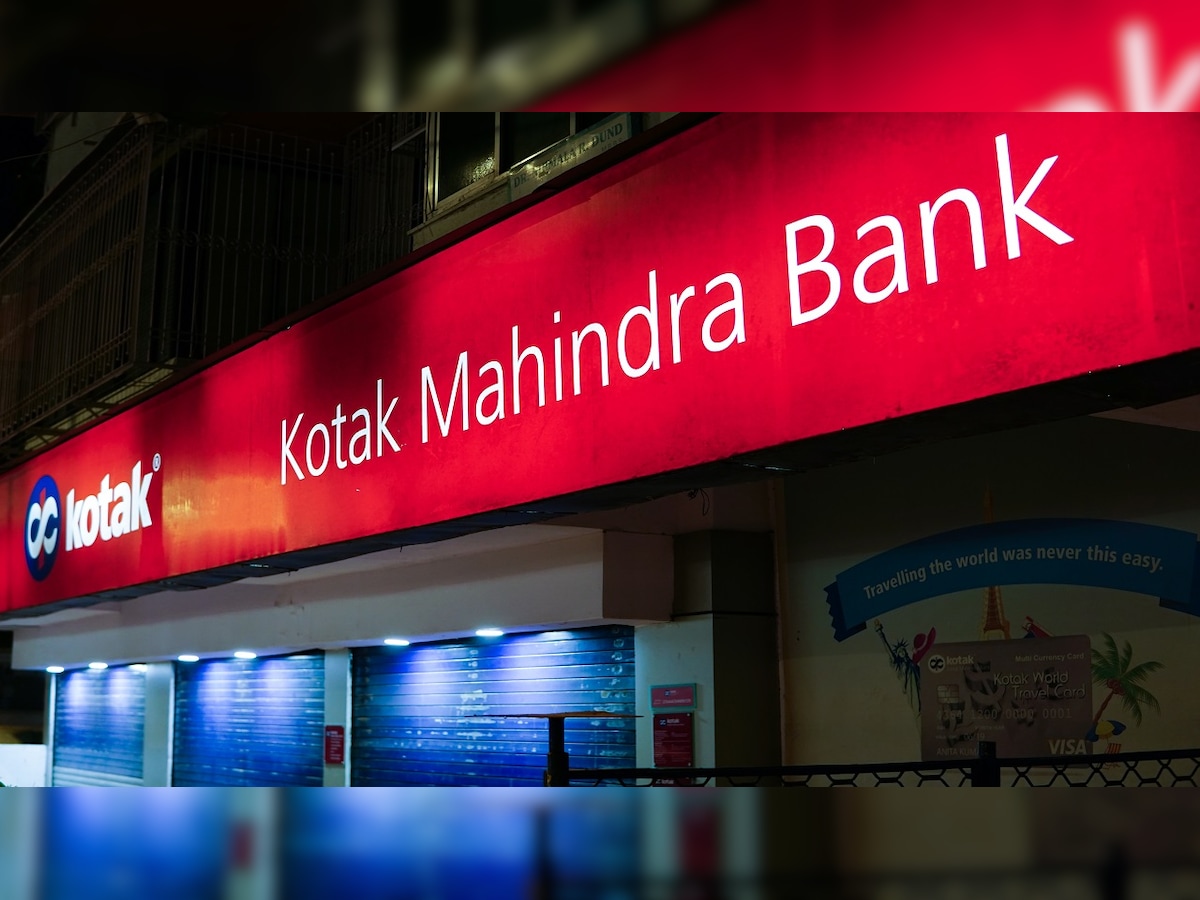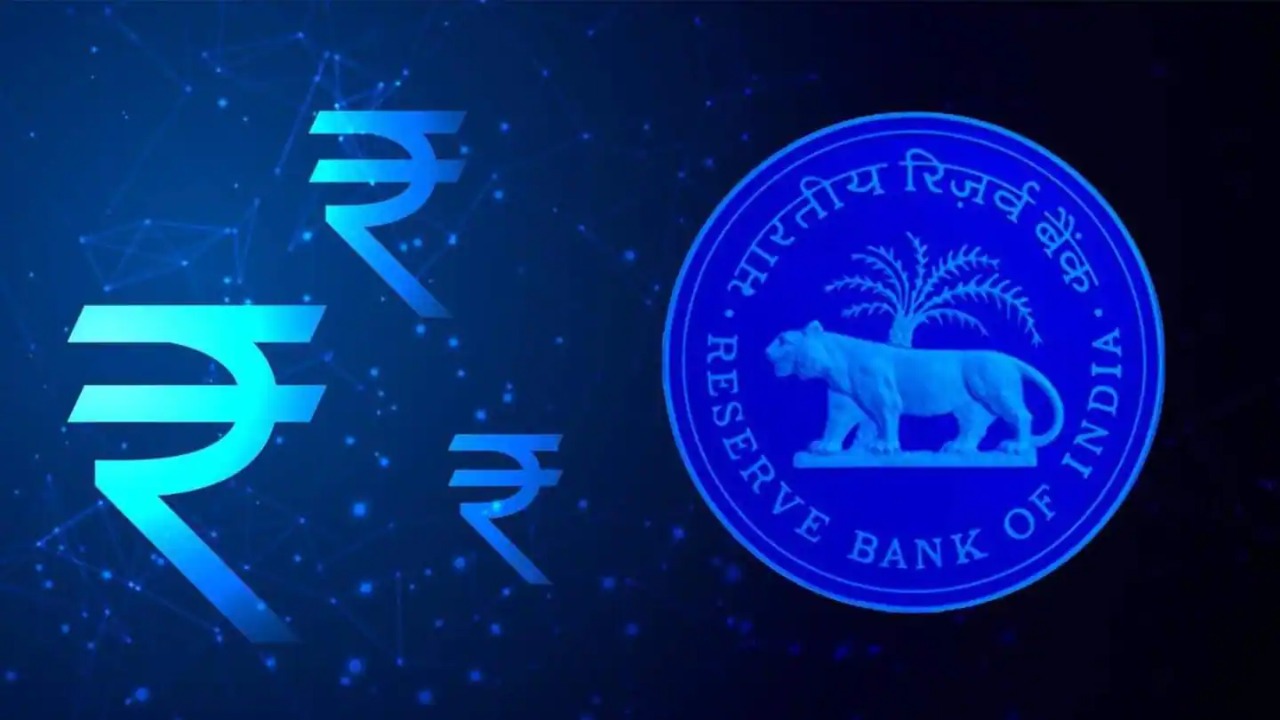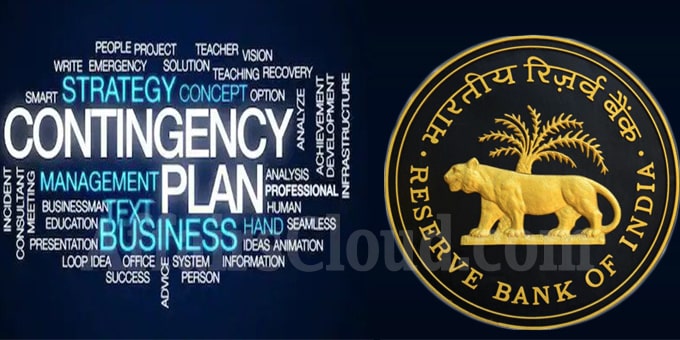RBI Slamming The Breaks On Kotak Mahindra Bank At The Critical Time Of Elections, What’s The Story, How Will It Affect Kotak Customers?
Kotak Mahindra Bank, India's fourth largest private lender by assets, has just been hit by the RBI's hammer. The banking regulator intensified its oversight of financial institutions, leading to a series of constraints for various entities in the financial services sector, with Kotak Mahindra Bank being the latest addition to the list. However, the newest action gives way to scepticism regarding the actions of the RBI during the election period; why now? Again, with the outing of the electoral bonds, there are concerns about the concentration of economic power in the hands of a few families, purportedly facilitated by political connections and business dealings. At the same time, how does RBI's move affect Kotak customers?

Kotak Mahindra Bank, the fourth largest private lender in India by assets, is under increased scrutiny due to the Reserve Bank of India’s (RBI) heightened oversight of financial institutions.
This heightened oversight has resulted in a series of regulatory constraints for several financial service entities, with Kotak Mahindra Bank being the most recent addition to the list.
There are indications that more entities might face penalties for negligence, particularly if they have disregarded prior warnings and red flags.
Notably, Kotak Mahindra Bank is not alone in experiencing a temporary prohibition on card issuance; in 2020, HDFC Bank, India’s largest bank by market capitalization, faced a similar restriction.
In response to the RBI’s temporary halt on acquiring new customers through online and mobile banking channels and issuing fresh credit cards, the stock price of Kotak Mahindra Bank plummeted by up to 12% to Rs 1,620 on the Bombay Stock Exchange (BSE) on April 25. Investors reacted by selling off the blue-chip Nifty stock.
The RBI ban is perceived not only as negative for the company in the short to medium term but is also expected to have repercussions on growth, net interest margins (NIMs), and fee income.

The RBI’s Hammer
The Reserve Bank of India (RBI) is toughening its regulatory stance, signalling a more serious approach to its oversight role. Recent actions by the RBI against banks have been viewed by many as overly stringent, indicating the central bank’s firm stance.
Despite corrective action plans issued by the RBI in 2022 and 2023, subsequent assessments revealed non-compliance by the bank.
The compliance statements submitted by Kotak Mahindra Bank were deemed inadequate, incorrect, or unsustainable.
As a result, the RBI imposed some of the toughest curbs on a scheduled bank, including barring Kotak Mahindra Bank from signing up new customers through its online and mobile banking channels and issuing fresh credit cards.

RBI’s Inaction
Amid long-standing criticism of the Reserve Bank of India (RBI) for its lenient approach, the central bank has adopted a more stringent stance in recent times.
Previously, in 2011, when numerous companies reported significant losses in currency derivatives sold by banks, the RBI imposed relatively minor penalties ranging from Rs 5-15 lakh on the lenders.
However, in a notable shift, the regulator recently ordered IIFL Finance Ltd to cease its gold loan business after finding the company in violation of its guidelines.
Former RBI Deputy Governor R Gandhi cited that past penalties were often seen as insufficient to prompt corrective actions, especially when issues were systemic rather than isolated incidents.
The current approach appears to emphasize substantial penalties aimed at inducing desired behavioral changes, conveying a message that growth will be contingent upon rectification.

Kotak’s Statement
Kotak Mahindra Bank’s CEO, Ashok Vaswani, has reached out to reassure customers amidst the RBI’s recent actions.
In a letter addressed to customers, Vaswani affirmed that all banking operations via various channels continue without interruption, assuring customers of continued access to existing banking services, including branches, bank accounts, credit/debit cards, ATMs, and mobile and net banking facilities.
However, he noted a temporary pause in the issuance of new credit cards.
Vaswani emphasized the bank’s proactive efforts to address raised concerns and ongoing communication with the regulator to swiftly resolve any issues.
Herein we look at a few questions that are top priority of Kotak Bank Customers –
Is your Kotak 811 account secure? Can Kotak Mahindra Bank patrons renew their cards?
How will the customers of Kotak Mahindra Bank be affected by the Reserve Bank of India’s (RBI) decision to prohibit the private sector bank from enrolling new customers through online and mobile banking channels and issuing fresh credit cards?
Should Kotak 811 account holders be concerned?
Can Kotak Mahindra Bank clients renew their credit cards at present?
What implications does the RBI’s action have for prospective customers intending to open accounts with Kotak Mahindra Bank?

1) Will Kotak 811 clients retain access to their accounts following the RBI’s move?
Kotak 811 customers who opened their accounts digitally will remain unaffected by the recent regulatory decision. They can continue to access their accounts through Kotak Mahindra Bank’s internet banking and mobile application.
2) Will services on Kotak Mahindra Bank savings or current accounts be disrupted after the RBI’s prohibition?
Due to the RBI’s measures, existing accounts at Kotak Mahindra Bank will not experience any disruptions. In an official statement, the bank assured its current clientele of uninterrupted services, including credit cards, mobile banking, and net banking.
3)Can individuals initiate the opening of a Kotak 811 digital savings account at this time?
As Kotak 811 is a digital savings account, new customers will not have the option to open accounts under this scheme following the RBI’s restrictions.
Shivaji Thapliyal, Head of Research and Lead Analyst at YES Securities, clarifies, “The ban imposed on Kotak Mahindra Bank extends to the onboarding of new customers through any online channels. This suggests that all individuals new to the bank who seek to acquire banking products online will not be able to do so until the ban is lifted.”
4) Is it possible to open a savings bank account at any Kotak Mahindra Bank branch?
The private sector bank faces no restrictions on enrolling new customers through offline avenues such as bank branches. Therefore, if you wish to do so, you can visit your nearest Kotak Mahindra Bank branch and initiate the account opening process.
Kotak Mahindra Bank has stated, “Our branches continue to welcome and onboard new customers, providing them with all the bank’s services, other than…”
5) Will Kotak Mahindra Bank credit card holders be affected?
Kinjal Champaneria, Partner at Solomon & Co., asserts, “The current limitations imposed on Kotak should not affect its existing customers, including those with credit cards, except for difficulties encountered in accessing online banking services for existing customers due to lapses in Kotak’s IT infrastructure systems.”

6)Can existing Kotak Mahindra Bank credit card holders renew their cards?
Champaneria further explains, “Regarding credit cards, Kotak will be unable to issue new cards but will continue to serve existing customers, including facilitating card renewals.”
Therefore, Kotak Mahindra Bank customers due for credit card renewals can proceed without encountering any difficulties.
7) Is it possible to obtain a new credit card from Kotak Mahindra Bank?
Given the RBI’s ban on Kotak Mahindra Bank issuing new credit cards, obtaining a new credit card from the private sector bank is currently not feasible.
8) How long will the current restrictions remain in effect?
According to a press release dated April 24, 2024, by the RBI, “The restrictions now being imposed will be reviewed upon completion of a comprehensive external audit to be commissioned by the bank with the prior approval of RBI, and remediation of all deficiencies that may be pointed out in the external audit as well as the observations contained in the RBI Inspections, to the satisfaction of the Reserve Bank.”

Recent Cases
The recent action taken against Kotak Mahindra Bank recalls the recent crackdown on Paytm Payments Bank, which had similarly disregarded compliance with RBI norms over an extended period.
Over the past few years, the central bank has been increasingly assertive in its regulatory oversight.
Beginning with its intervention with HDFC Bank in 2020, the RBI’s firm stance on regulatory breaches in recent times follows several cautionary cases.
The collapse of Infrastructure Leasing & Financial Services (IL&FS) in 2018 marked the largest bankruptcy in Indian history.
Yes Bank’s rescue required the mobilization of a coalition of banks that invested significant sums in equity.
Additionally, Dewan Housing Finance Ltd and PMC Bank faltered due to corruption and lax regulatory oversight.
All of these developments have accelerated the manner in which the regulator oversees, inspects, and penalizes violators; hence to ensure a cohesive and systematic approach, a unified Department of Supervision was established, consolidating all banks, non-banking financial companies (NBFCs), and cooperative banks under one umbrella.
This move has reduced supervisory discrepancies and information disparities while addressing complexities arising from interconnectedness.
Also, the emergence of new banking trends has compelled the RBI to enhance its scrutiny. Today, authorities are just as vigilant regarding digital transactions as they were about home loans two decades ago. Back then, propelled by low interest rates and banks’ pursuit of new business, home loans surged in popularity.

How RBI’s Action Is Being Perceived
The RBI’s recent stringent punitive measures represent a departure from historically nominal financial penalties imposed for breaches, as noted by S&P Global Ratings.
The RBI demonstrates a serious commitment to enhancing governance and transparency within the sector.
Geeta Chugh, credit analyst at S&P Global, remarked, “Governance and transparency are significant weaknesses in the Indian financial sector and factor into our analysis. The RBI’s new measures are fostering a more robust and transparent financial system.”
Even at the potential risk of inhibiting growth and increasing the cost of capital for financial institutions, the RBI is toughening its approach. “We do not wait for the house to catch fire and then act,” stated RBI Governor Shaktikanta Das in December when addressing the bank’s announcement of stricter rules for personal loans.

The Viewpoint- Why At A Critical Time Of Elections
Suppose we were to give a cynical perspective on the role of the Reserve Bank of India (RBI) and its actions during election periods.
Electoral Bonds gave us a clear picture—the influence of money in politics and the concentration of power among certain individuals or families. A few very prominant names came up. At the same time, there were those (mega conglomerates) whose names were missing.
Are we to conclude that they have no political clout and exert no influence?
Therefore, while RBI’s mandate includes regulating the country’s monetary policy, maintaining financial stability, and supervising banks and financial institutions, among other responsibilities, are RBI’s actions purely driven by economic factors and financial regulations rather than political motives?
Furthermore, as we look at consolidation and moves by certain renowned names, the notion that political favoritism could lead to the consolidation of financial institutions under specific families’ control cannot be overlooked.
India’s banking sector is subject to regulatory oversight by various bodies, including the RBI, the Securities and Exchange Board of India (SEBI), and the Competition Commission of India (CCI), among others.
These institutions play crucial roles in ensuring fair competition, preventing monopolistic practices, and safeguarding consumer interests – but so far, SEBI has come under extreme scrutiny and so has RBI for its very relaxed approach- thus why clean out the closet now?




